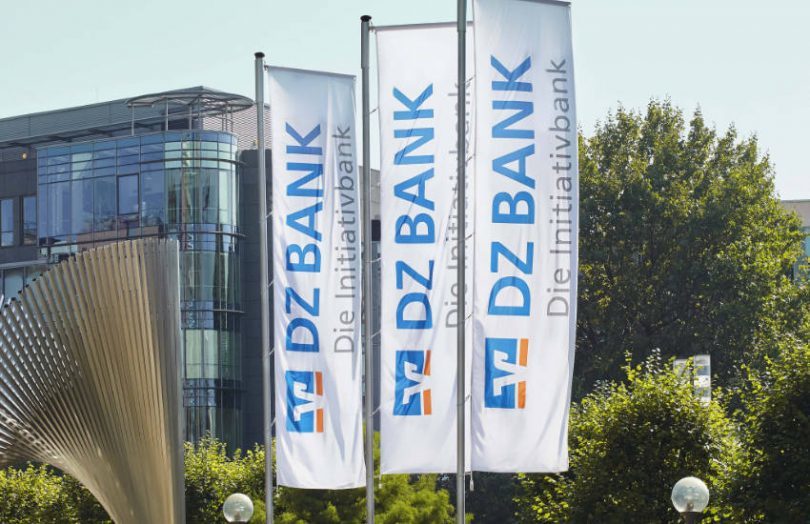DZ Bank, Germany’s second largest by assets, is working on adigital asset custodysolution. The move is driven by client demand, less so for cryptocurrency and more for digital financial instruments, although the solution will handle both. On the securities settlement side, the bank is keen to see the European Central Bank progress toward a wholesale central bank digital currency (CBDC) to enable the settlement of distributed ledger (DLT) transactions.
The bank has been working on the strategy and design of the custody solution for some time and is in the process of appointing a consultant to help to implement the solution and assist with BaFin regulatory approval. At this stage, it is not planning to partner with one of the crypto custody technology firms but intends to develop its own offering.
Talking to Holger Meffert, who heads the bank’s securities management division, he clarified that a key driver is client demand. One of the bank’s biggest clients is Union Investment. While perhaps less well known internationally, Union has assets under management of €427 billion ($427bn), which is only 7% less than the famed American KKR. “For most of the funds that Union Investment has, we are their depository bank, so we should be able to cover their needs,” said Meffert.
Compared to other asset managers, Union Investment considers innovation a high priority. For example, last year, it made a significant investment in theEuropean Investment Bank (EIB) €100mtokenized Ethereum bond issuance, with DZ Bank involved as well. At the time, Union’s Christoph Hock said, “We expect the use of blockchain in combination with tokenization to become a game changer for the industry.”
While DZ Bank is focused on its German clients, asset managers tend to invest internationally, and DZ has to be able to support that.
Digital currency for securities settlement
Alongside Union Investment, DZ Bank was involved in the EIB bond transaction, which settled in a wholesaleCBDC pilot transactionprovided by the Banque de France.
When Meffert was asked about plans to tokenize money for securities settlement, he was emphatic about the need to settle in central bank money on ledger.
Early last year, DZ Bank participated in theBundesbank’s experimentsto trial the settlement of DLT transactions using conventional central bank money. It involved a trigger mechanism integrating with the TARGET2 real-time gross settlement system (RTGS), which enables delivery versus payment (DvP) transactions.
While the ECB has been working on a retaildigital euro, he said in the last three months, it has quietly started to canvas banks about a wholesale digital euro. During the past week, theECB has confirmedas much.
Asked about the Bundesbank trigger approach, Meffert said, “This would be a solution that would be a temporary one. Because really doing it the right way would need to have a coin on ledger which is able to settle on ledger.” Meffert clarified that it’s the only way to reap the efficiencies of DLT and all the large organizations he’s talked to consider a wholesale CBDC as “mandatory”.
Fnality, a consortium of 16 major institutions, has plans for a tokenized digital euro backed by central bank deposits, a so-called synthetic CBDC. Surely that’s a good solution? “This would help to get closer to the goal, but it wouldn’t be the goal,” said Meffert. “Because any kind of institution you have which is backing this stuff is counterparty risk.”
Meffert highlighted that atomic settlement or DvP can be expensive but has clear advantages.
“It’s completely different if you have to settle retail trades of €1,000 versus if you have to settle an issuing process of €10 billion. Then the thinking around counterparty risk is completely different,” said Meffert.
While that may sound dismissive, on the contrary, Meffert was not. He emphasized that he would not exclude anything. The goal is to get more partners onto networks, accumulate experience and find efficiencies.
“Fnality would obviously be a great starting point for some of the protocols to start off the settlement processes as well as the trigger solution might be one,” he added.
The path to institutional DLT adoption
The custody solution is not DZ Bank’s first blockchain initiative. In 2019 it launched thefinledgerplatform for promissory notes with DekaBank, dwpbank and Helaba. It was not a proof of concept. It is in production but only has around two or three issuances a year. Meffert believes it was an important first step, and if it were launched today, it would get more engagement simply because more banks are developing DLT infrastructures.
“DLT has a problem that any market participant you want to deal with has to be on the same ledger. To be on the same ledger you have to integrate the ledger to your legacy,” said Meffert.
He pointed to a chicken and egg situation where legacy integration involves cost, which is only justifiable if there are sufficient volumes. But without integration, there is no incentive to generate volumes because manual steps are involved.
To date, few companies have done the legacy integration. He mentionedSocGen FORGE, which provided the platform for the EIB bond issuance, and a handful of others. However, things are changing rapidly as all the large banks, both in Germany and internationally, are now building out DLT teams. This is a game changer.
Because once there’s a core DLT infrastructure integrated with the legacy system, the effort to integrate with new DLT networks is far lower, reducing the barriers to entry.
“It’s the right decision to ramp up our own custody solution to be able to participate in the building of networks,” said Meffert.











 All while Pfizer—a company with a $2.3 billion criminal fine for fraudulent marketing, bribery, and kickbacks—was given blanket immunity from liability and billions in taxpayer dollars to produce a vaccine in record time with no long-term safety data.
All while Pfizer—a company with a $2.3 billion criminal fine for fraudulent marketing, bribery, and kickbacks—was given blanket immunity from liability and billions in taxpayer dollars to produce a vaccine in record time with no long-term safety data.
























